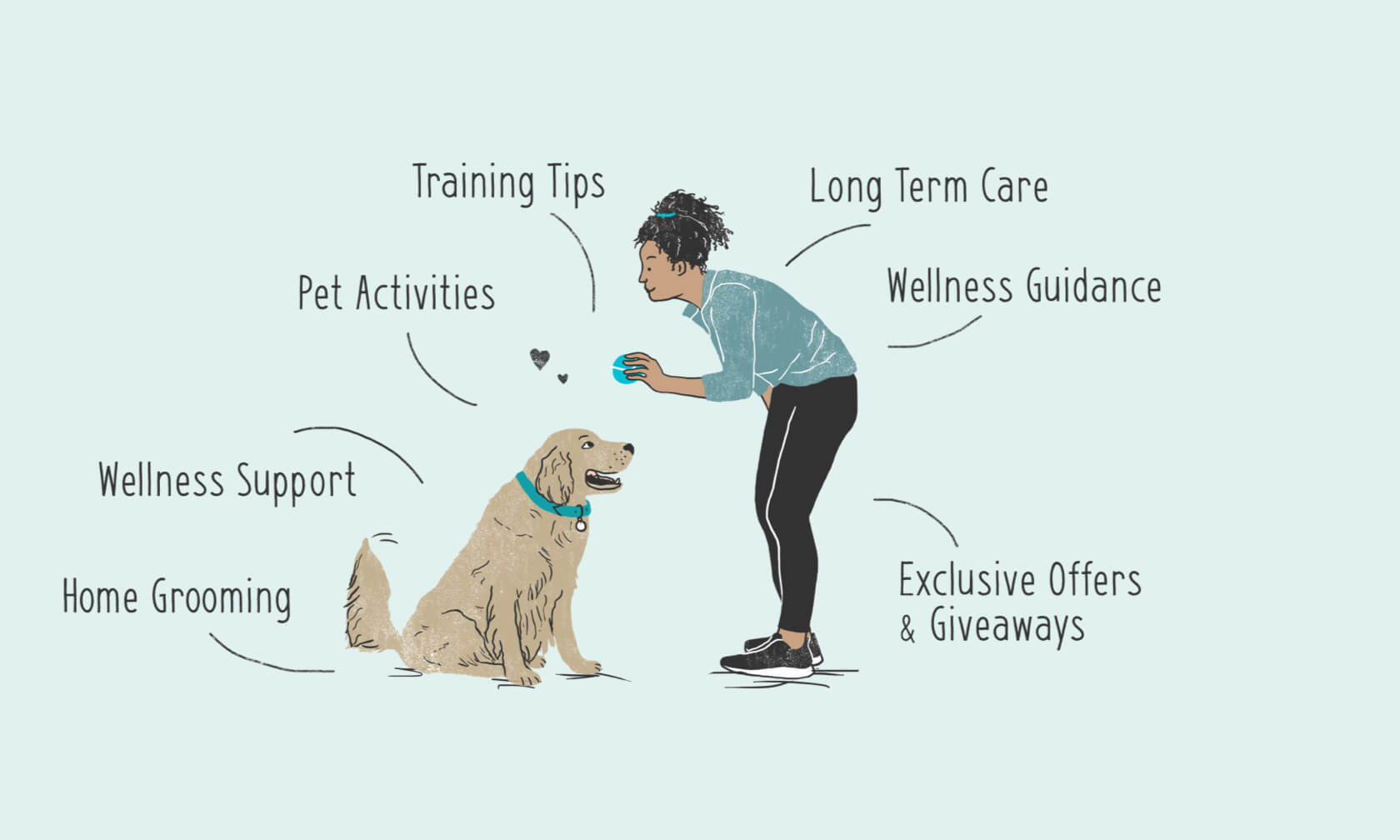The Most Effective Pet Grooming Practices to Maintain Your Pets Looking Their Finest
The Most Effective Pet Grooming Practices to Maintain Your Pets Looking Their Finest
Blog Article
Recognizing Your Pets' Nutritional Demands for Optimal Well-being

Importance of Well Balanced Diet Regimens
Ensuring a well balanced diet regimen for animals is critical for their overall health and wellness and health. Family pets, like people, need a mix of healthy proteins, carbs, vitamins, minerals, and fats to preserve ideal wellness.
Including a variety of nutrients guarantees that pet dogs keep a durable body immune system, healthy and balanced skin, and a shiny coat. A well balanced diet plan can protect against a host of health and wellness concerns such as excessive weight, which is connected to diabetics issues and joint issues, or poor nutrition, which can lead to developmental delays and organ disorder.
Pet dog proprietors must be mindful of portion sizes and caloric consumption, as overfeeding or underfeeding can have major effects. Consulting with vets or family pet nutritional experts can aid tailor diets to fulfill specific requirements, ensuring that family pets get the ideal balance of nutrients needed for their activity, dimension, and age degree. A constant and balanced diet regimen is vital for an animal's longevity and happiness.
Species-Specific Nutritional Demands
How do various types of pets have varying dietary requirements? This concern highlights the need for a customized strategy to feeding our pet companions. Each species possesses distinct metabolic paths, digestive systems, and dietary requirements that have to be fulfilled for optimum health. Canines are omnivores, needing a well balanced diet of fats, proteins, and carbs, while felines, as obligate carnivores, need a higher healthy protein intake acquired mainly from animal sources.
Birds, depending on their species, might require a diet plan rich in bugs, fruits, or seeds, highlighting the variety within the bird world. Pets. Reptiles, such as serpents and turtles, similarly demand species-specific diet regimens, with some needing high levels of calcium and others, a well-calibrated balance of bugs and plant matter
Failing to give species-appropriate nourishment can bring about shortages or excesses, hindering health and durability. Feeding a pet cat canine food might result in taurine deficiency, leading to serious health and wellness concerns such as heart condition. As a result, comprehending the dietary distinctions among different varieties is critical for pet dog owners. By acknowledging and catering to these distinctions, we make certain the arrangement of correct nourishment, supporting the general health and wellbeing and vigor of our pet dogs.
Age and Size Factors To Consider
While species-specific dietary demands lay the foundation for an animal's diet regimen, size and age more refine these requirements. Young pets, such as kittycats and pups, require diet plans abundant in calories, proteins, and crucial nutrients to sustain fast growth and development. These young animals have greater metabolic rates and need even more constant feedings to maintain their power degrees and guarantee proper development of muscle mass, bones, and body organs.
As pets age, their nutritional needs alter considerably. Adult pets typically need fewer calories than their more youthful counterparts but still require a balanced diet regimen to preserve total health and wellness and vigor. Formulas developed for grown-up family pets commonly focus on preserving weight, advertising gastrointestinal wellness, and supporting an active way of life. click here now Conversely, elderly family pets might benefit from specialized diets that deal with age-related obstacles, such as joint health and wellness, cognitive feature, and body organ assistance.

Health Issues and Dietary Adjustments
Particular health conditions can considerably affect the nutritional requirements of pets, necessitating customized dietary adjustments to support their health. Family pets with diabetic issues may benefit from diets that are high in fiber and low in simple carbs to help manage blood sugar levels. Obese pets frequently need reduced-calorie diet regimens to advertise weight loss and prevent associated health and wellness problems.
Pet dogs with kidney disease might require diet regimens reduced in phosphorus and protein to alleviate kidney work. Omega-3 fatty acids, known for their anti-inflammatory properties, can be useful for pet dogs suffering from problems like joint inflammation or inflammatory digestive tract condition. Additionally, pets with food allergies or intolerances may need hypoallergenic diet plans, usually calling for a procedure of removal to recognize and exclude offending ingredients.
Veterinary guidance is essential when making dietary modifications, as inaccurate nutrition can intensify existing illness or result in new ones. Regular monitoring and adjustments based upon the pet dog's feedback to nutritional modifications are crucial. A well balanced technique, thinking about both clinical and nutritional demands, makes certain that nutritional treatments contribute positively to taking care of health and wellness conditions, improving not just the pet dog's health and wellness but likewise their quality of life.
Tips for Choosing Top Quality Pet Dog Food
Selecting the appropriate family pet food is vital for guaranteeing your animal's health and long life. A balanced diet sustains their immune system, maintains healthy and great site balanced weight and promotes total vitality. Begin by consulting your vet to comprehend your animal's details dietary needs based upon age, health, and type condition.
When assessing pet dog food, inspect the active ingredient checklist. High-quality animal foods commonly detail actual meat, poultry, or fish as the primary component.
This suggests the food meets recognized nutritional standards. Brand names with a background of recalls or bad high quality control ought to be approached with care.
Take into consideration whether your pet dog would certainly benefit from special view it now formulations such as grain-free, high-protein, or limited-ingredient diet regimens. These can be valuable for pet dogs with allergic reactions or particular health concerns. Observe your animal's response to the food. Display their coat condition, power levels, and food digestion to make certain the diet works.
Verdict
A detailed understanding of pet dogs' nutritional needs is important for advertising their optimum wellbeing. By adhering to these principles, family pet proprietors can dramatically add to their pet dogs' development, power degrees, and total health, fostering a better and healthier life.

Choosing the ideal family pet food is crucial for ensuring your pet's health and long life. By adhering to these principles, pet owners can considerably contribute to their animals' growth, energy levels, and overall health, promoting a better and much healthier life.
Report this page